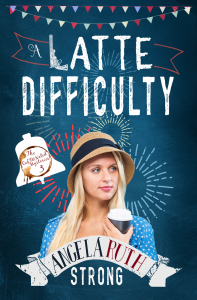by Angela Ruth Strong, @AngelaRStrong
Director Brian Bird told the story of how his neighbor who was an unbeliever got invited to see a Christian movie. Afterward, he said to Brian, “Now I know why he wanted me to see that movie. Because it was preachy.”
As Christian writers, our message must be powerful, but it can’t be preachy. So how do we find such a balance?
I discovered the answer in Story by Robert McKee. He said, your message has to be so strong that it overcomes the most powerful argument against it.
Life is messy. Writing like all our troubles will disappear when we choose Jesus is trite and heartless. In fact, it’s referred to negatively as “deus ex machina,” so named after the Greek plays where the ancients used a machine to lower a statue of their god onto the stage to solve all the problems for their characters.
For a modern-day example, when I was a teenager, my parents bought me a book on purity. In the story, a boy holds up a condom and says, “Is it time for this?” The girl says no, and the boy gets AIDS when he sleeps with someone else. In that situation, saying no to sex was easy. But that’s why the book wasn’t powerful.

For a stronger message, you’d have to read Courting Trouble by Deeanne Gist. In that one, Essie is on the verge of spinsterhood. She feels rejected and alone. Then comes along a dashing rouge who makes her feel beautiful and desirable. It takes the reader to the verge of wanting Essie to sacrifice her virginity for what she thinks will lead to happily ever after. Thus, when Essie makes a mistake, the reader feels her ache and questions whether they would have done any better.
If you’re writing about abortion being wrong, you must have a character get impregnated by rape at the age of fifteen. If you’re writing about forgiveness, your character is going to have to let go a three-and-a-half million dollar lawsuit she’d won against the man who killed her husband in a hit-and-run after he lied under oath and was ruled innocent.
Your story question needs to make the reader wonder how they would have handled it. The movie Arrival did this for me. Would I still get married and have a baby if I knew my daughter was going to die and my spouse was going to leave me because I married him and had a baby even while knowing how it all would end?
This is also the message of Christianity. Like Amy Adam’s character in Arrival, God chose to commit to us while knowing the commitment meant He would lose His child and we would leave Him. I knew the story, but I felt its power all over again. This preaches without being preachy.
What’s your message? What is it you still struggle with? What breaks your heart? That’s what is going to connect with readers. That’s what is going to make them ponder for days. Weeks. Years. And they’ll be better because of it.
Brian Bird likes to make Christian movies based on real-life stories because they are more believable to an unbelieving audience. Use your real-life struggles to make your stories believable too.
Can two baristas track down a gunman after the espresso shot heard ‘round the world?
When Marissa witnesses an attempted murder during the 4th of July parade, it starts a battle for her independence. She is forced to hide out in a safehouse, leaving her co-owner, Tandy, to run their coffee shop, track down the criminal, and, worse, plan Marissa’s wedding. Thankfully Tandy has help, but can she really trust the P.I. in a bow tie, her new deaf barista who acts more like a bartender, or a wedding planner who’s keeping secrets?
The threat on Marissa’s future goes from bad to worse when her bridal gown is covered in blood. Though her fiancé, Connor, agrees to give up his identity to join her in the Witness Protection Program, Marissa refuses to wave the white flag. Instead, she enlists Tandy to help her fight for truth, justice, and the Americano way.
Angela Ruth Strong sold her first Christian romance novel in 2009 then quit writing romance when her husband left her. Ten years later, God has shown her the true meaning of love, and there’s nothing else she’d rather write about. Her books have since earned TOP PICK in Romantic Times, been optioned for film, won the Cascade Award, and been Amazon best-sellers. She also writes non-fiction for SpiritLed Woman. To help aspiring authors, she started IDAhope Writers where she lives in Idaho, and she teaches as an expert online at WRITE THAT BOOK.


